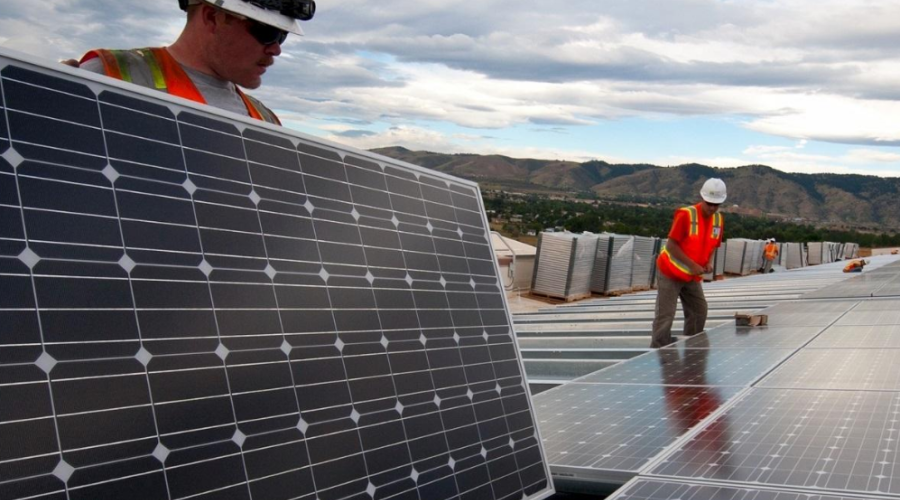
New eCornell Certificate Explores Intersection of Climate Change, Labor and Equity
As the climate crisis intensifies, its impacts are disproportionately felt by marginalized and working-class communities. A new certificate being offered by eCornell, in conjunction with the ILR School’s Climate Job Institute, will delve into the critical intersection of climate change, labor and equity, exploring the far-reaching implications of a warming planet on workers, communities and the broader economy.
“We at the Climate Job Institute have done some really great educational programming for our partners in the labor movement, and that will be a big focus of this certificate, but we also see this as a good opportunity to spread the message to a broader audience,” said Zach Cunningham, MILR ’15, training and education associate at the Climate Job Institute. “We’ve wanted to engage with more policymakers, environmental partners, and people specializing in workforce development to talk about tackling the climate crises in a way that prioritizes high-quality jobs and equity. We feel that an eCornell certificate is a perfect opportunity to help us do that.”
The course, geared towards policymakers, elected union leaders, staff and members and individuals in the environmental movement, will examine the causes of climate change and how it exacerbates existing inequalities for diverse populations.
The certificate consists of four online courses with distinct themes, each structured to be completed within a two-week timeframe.
“There are a lot of interactive pieces built in,” said Cunningham. “There will be a chat board that will allow for class discussions. Participants will read through case studies and then respond to prompts. There will also be online quizzes, as well as a project.”
For the project, participants will think through a climate action campaign that can be implemented by their organization and outline the steps necessary to make it happen.
At the heart of the certificate lies the climate jobs approach to climate action, a method that emphasizes creating high-quality jobs and expanding opportunities in the transition to a clean energy economy. Class participants will explore the principles and policy interventions underpinning this approach and come to understand how it can be harnessed to advance worker-centered and equitable climate solutions. At the certificate's end, participants will be able to execute strategic planning to enact a winning climate jobs campaign.
“At this moment in time, for many reasons, folks are interested in climate action, equity, equitable economic development and workers’ rights. And we feel that we are uniquely positioned to speak to all of those areas,” Cunningham said.
The class is designed to show the political and economic dynamics that shape climate policy and analyze the roles of business interests, government entities, labor unions and social movements in addressing or neglecting the climate crisis. Examining the complex relationships among these actors will provide a deeper understanding of the forces driving climate policy decisions.
“This course will allow us to expand the training and education work that we do as an institute,” Cunningham said. “The individuals on our team, who are experts in facilitation and labor education, will compile a lot of pieces about the work we do and package that into a digestible format to share with the participants.
“It will allow us to show what we do, why we think this work is important, and the way that we think is most likely to succeed in tackling the climate crisis, which, as far as we’re concerned, is the existential crisis of our times.”